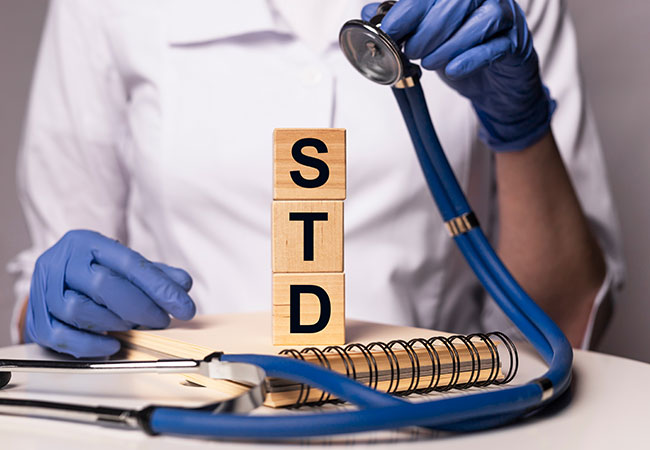

At Metro Urgent Care, we prioritize your health and convenience with affordable, walk-in STD & STI testing in Chicago (Fullerton, Montrose) & La Grange, IL. Our expert team delivers confidential and accurate results, empowering you to take control of your sexual health effortlessly.
BOOK APPOINTMENT - FULLERTON AVE BOOK APPOINTMENT - MONTROSE AVE BOOK APPOINTMENT - LA GRANGE
STD testing detects and screens for sexually transmitted infections (STIs) transmitted through sexual contact. It involves methods like blood, urine, swabs, and physical exams. Testing identifies HIV, chlamydia, gonorrhea, syphilis, herpes, and more, enabling early treatment and prevention of STI spread.
Regular STD testing is essential for maintaining sexual health, even if you have no symptoms. Many STIs can be asymptomatic but still cause long-term health issues or be transmitted to partners. At Metro Urgent Care, our confidential testing ensures accurate results, timely guidance, and personalized care, helping you make informed decisions about your sexual health and overall well-being.

The most common sexually transmitted infections (STIs) include:

Metro Urgent Care
provides high-quality, confidential, patient-centered walk in STD & STI check in Chicago (Fullerton, Montrose) & La Grange, IL services. We offer professional and comprehensive STD testing conducted by experienced healthcare providers. With advanced diagnostic tools and accurate results, you can trust in the reliability of our services.
We prioritize your comfort and privacy, ensuring that your information remains confidential. Moreover, our team is dedicated to providing compassionate care and guidance, offering support throughout testing. Book your appointment today!
Costs vary by the type of test and insurance coverage. Metro Urgent Care provides affordable testing options and can guide you on insurance or self-pay options.
Dealing with STD anxiety starts with understanding that it's normal to feel this way, and taking steps like getting tested, speaking with a trusted healthcare provider, and avoiding misinformation can help you feel more in control and at ease.
STD test results can vary, but many tests provide results within a few days, while some rapid tests may give results in as little as 20 minutes. The timing depends on the type of test and the laboratory processing the sample.
At-home STD testing kits are available, allowing you to collect samples privately and send them to a lab for analysis. These kits typically test for common STDs like chlamydia, gonorrhea, HIV, and syphilis. Be sure to choose a reputable service and follow the instructions carefully.
Common signs of an STD include unusual discharge, burning during urination, sores or blisters, itching or irritation, and lower abdominal pain. Some STDs may not show any symptoms at all, so regular testing is important.
Yes, many urgent care centers, including Metro Urgent Care, offer full panel STD testing. This typically includes tests for HIV, chlamydia, gonorrhea, syphilis, hepatitis B and C, and sometimes herpes. Full panel testing allows for a comprehensive check of common STIs, even if you have no symptoms, ensuring early detection and timely treatment.